 W
WSir Ralph Abercromby was a Scottish soldier and politician. He twice served as MP for Clackmannanshire, rose to the rank of lieutenant-general in the British Army, was appointed Governor of Trinidad, served as Commander-in-Chief, Ireland, and was noted for his services during the French Revolutionary Wars.
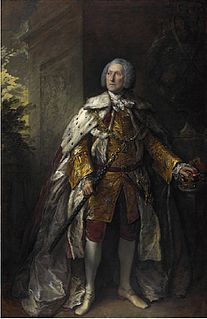 W
WGeneral John Campbell, 4th Duke of Argyll KT PC, was a British Army officer and Scottish Whig politician who sat in the House of Commons between 1713 and 1761. From 1729 to 1761 he was known as John Campbell of Mamore.
 W
WAlexander Francis St Vincent Baring, 6th Baron Ashburton, was a British businessman and politician.
 W
WColonel Sir Hugh Trefusis Brassey was a British soldier and magistrate.
 W
WBrigadier General Charles Bulkeley Bulkeley-Johnson (1867 –1917) was a British and Egyptian Army officer who served in the Mahdist War and the First World War, he was killed in action on 11 April 1917, while commanding the 8th Cavalry Brigade, on the second day of the Battle of Arras.
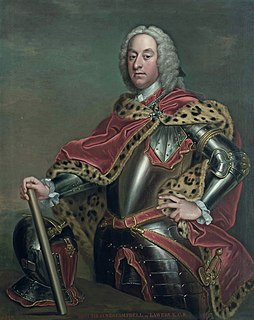 W
WLieutenant-General Sir James Campbell KB, of Lawers, Perthshire was a British Army officer and a Scottish Whig politician who sat in the House of Commons from 1727 to 1741.
 W
WAlastair Arthur Windsor, 2nd Duke of Connaught and Strathearn was a member of the British Royal Family. He was the only child of Prince Arthur of Connaught and Princess Alexandra, 2nd Duchess of Fife. He was a great-grandson of Queen Victoria through his father and her great-great-grandson through his mother.
 W
WGeorge Henry Conyngham, 3rd Marquess Conyngham, styled Earl of Mount Charles from 1832 to 1876, was a British peer and soldier.
 W
WLieutenant-General John Lindsay, 20th Earl of Crawford was a Scottish peer and the first colonel of the Black Watch on its formation in 1739.
 W
WSir Thomas Dalyell of The Binns, 1st Baronet (1615–1685) was a Scottish Royalist general in the Wars of the Three Kingdoms, also known by the soubriquets "Bluidy Tam" and "The Muscovite De'il".
 W
WThomas Lionel Dugdale, 1st Baron Crathorne,, known as Sir Thomas Dugdale, 1st Baronet from 1945 to 1959, was a British Conservative Party politician. He resigned as a government minister over the Crichel Down Affair, often quoted as a classic example of the convention of individual ministerial responsibility.
General Sir David Dundas was a British Army officer who fought in the Seven Years' War and French Revolutionary Wars, wrote important texts on the Principles of Military Movements and then served as Commander-in-Chief of the Forces from 1809 to 1811.
 W
WCharles Murray, 1st Earl of Dunmore (1661–1710) was a British peer, previously Lord Charles Murray.
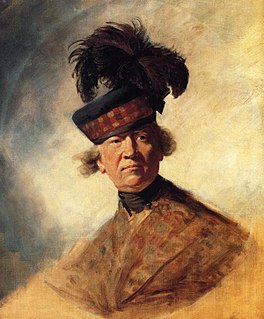 W
WArchibald Montgomerie, 11th Earl of Eglinton was a Scottish General and Member of Parliament (MP) in the British Parliament. He was also the Clan Chief of the Clan Montgomery. Montgomerie fought in the Seven Years' War, where he served with George Washington. He also was the patron of the poet Robert Burns.
 W
WJohn Scott, 4th Earl of Eldon was a British Royal Auxiliary Air Force officer, peer and courtier.
 W
WEnsign Charles Ewart was a Scottish soldier of the Royal North British Dragoons, famous for capturing the regimental eagle of the 45e Régiment de Ligne, '45th Regiment of the Line' at the Battle of Waterloo.
 W
WPatrick Ferguson was a Scottish officer in the British Army, an early advocate of light infantry and the designer of the Ferguson rifle. He is best known for his service in the 1780 military campaign of Charles Cornwallis during the American Revolutionary War in the Carolinas, in which he played a great effort in recruiting American Loyalists to serve in his militia against the Patriots.
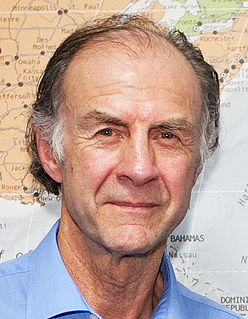 W
WSir Ranulph Twisleton-Wykeham-Fiennes, 3rd Baronet,, commonly known as Sir Ranulph Fiennes, and sometimes as Ran Fiennes, is a British explorer and holder of several endurance records. He is also a writer, poet and co-creator of Sir Ranulph Fiennes' Great British Rum.
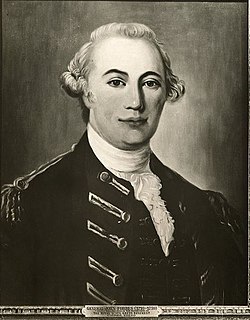 W
WJohn Forbes was a Scottish professional soldier who served in the British Army from 1729 until his death in 1759.
 W
WMajor-General Thomas Gordon was a British army officer and historian. He is remembered for his role in the Greek War of Independence in the 1820s and 1830s and his History of the war published in 1833.
 W
WGeneral Sir William Keir Grant, KCB, GCH was a British Army general during the first half of the 19th century.
 W
WJohn Grieve VC was a Scottish recipient of the Victoria Cross, the highest and most prestigious award for gallantry in the face of the enemy that can be awarded to British and Commonwealth forces.
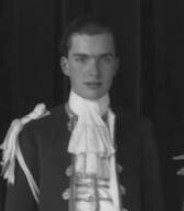 W
WGeorge Alexander Eugene Douglas Haig, 2nd Earl Haig, was a British artist and peer who succeeded to the earldom of Haig on 29 January 1928, at the age of nine upon the death of his father, Field Marshal the 1st Earl Haig. Until then he was styled Viscount Dawick. Throughout his life, he was usually known to his family and friends as Dawyck Haig.
 W
WBrigadier-General Lord John Hay was the second son of John Hay, 2nd Marquess of Tweeddale. He served in the British Army under the Duke of Marlborough.
 W
WJames Johnston was a general of the British Army, colonel of the Royal Horse Guards then colonel of the Scots Greys where he succeeded his sister's husband, Lieutenant General George Preston.
 W
WPrince Edward, Duke of Kent, is a member of the British royal family. He is a first cousin of Queen Elizabeth II through their fathers, Prince George, Duke of Kent, and King George VI. Because his mother, Princess Marina of Greece and Denmark was a first cousin of Prince Philip, Duke of Edinburgh, Edward is both a first cousin once removed and second cousin to Prince Charles and his siblings.
 W
WLieutenant Colonel Geoffrey Charles Tasker Keyes, was a British Army officer of the Second World War and a recipient of the Victoria Cross, the highest award that can be made to British and Commonwealth forces for gallantry in the face of the enemy. At the time he was the youngest acting lieutenant colonel in the British Army.
 W
WMajor James Leith was a Scottish recipient of the Victoria Cross, the highest and most prestigious award for gallantry in the face of the enemy that can be awarded to British and Commonwealth forces.
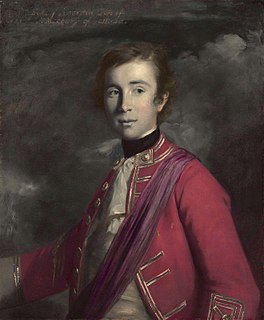 W
WGeneral William John Kerr, 5th Marquess of Lothian was a British soldier and peer, styled Lord Newbottle until 1767 and Earl of Ancram from 1767 to 1775.
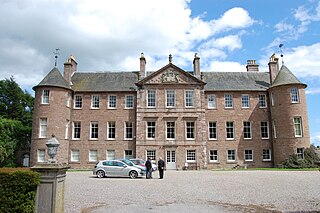 W
WGeneral William Maule, 1st Earl Panmure (1700–1782) was a Scottish soldier and politician who sat in the House of Commons for 47 years from 1735 to 1782.
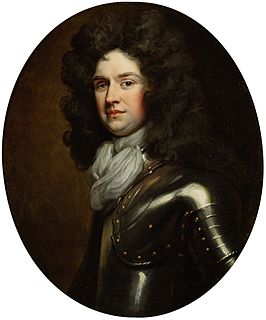 W
WGeneral David Colyear, 1st Earl of Portmore was a Scottish general and Governor of Gibraltar.
 W
WField Marshal Sir William Robert Robertson, 1st Baronet, was a British Army officer who served as Chief of the Imperial General Staff (CIGS) – the professional head of the British Army – from 1916 to 1918 during the First World War. As CIGS he was committed to a Western Front strategy focusing on Germany and was against what he saw as peripheral operations on other fronts. While CIGS, Robertson had increasingly poor relations with David Lloyd George, Secretary of State for War and then Prime Minister, and threatened resignation at Lloyd George's attempt to subordinate the British forces to the French Commander-in-Chief, Robert Nivelle. In 1917 Robertson supported the continuation of the Third Battle of Ypres, at odds with Lloyd George's view that Britain's war effort ought to be focused on the other theatres until the arrival of sufficient US troops on the Western Front.
 W
WMassey Henry Edgcumbe Lopes, 2nd Baron Roborough, JP of Maristow in the parish of Tamerton Foliot, Devon, was a British peer and officer of the British Army.
 W
WGeneral John Leslie, 10th Earl of Rothes KT was a senior British Army officer who became Commander-in-Chief of the Royal Irish Army between 1758 and 1767.
 W
WLieutenant-General Arthur Moyses William Hill, 2nd Baron Sandys, styled as Lord Arthur Hill until 1836, was an Anglo-Irish soldier and politician.
 W
WRichard Michael Oliver Hill, 7th Baron Sandys DL, was a British landowner and Conservative politician.
 W
WRichard Nathaniel Curzon, 2nd Viscount Scarsdale was an English peer and landowner, a member of the House of Lords for more than fifty years.
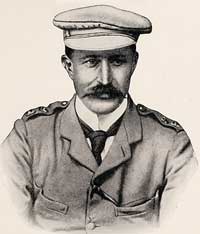 W
WMajor-General Sir Henry Jenner "Harry" Scobell, KCVO, CB was a British military leader who served as the last officer in command of Cape Colony before the formation of the Union of South Africa.
 W
WCharles de Laet Waldo Sibthorp, popularly known as Colonel Sibthorp, was a widely caricatured British Ultra-Tory politician in the early 19th century. He sat as a Member of Parliament for Lincoln from 1826 to 1832 and from 1835 until 1855.
 W
WEdward John Spencer, 8th Earl Spencer,, styled Viscount Althorp until June 1975, was a British peer and nobleman. He was the father of Diana, Princess of Wales, meaning he is the maternal grandfather of Prince William, Duke of Cambridge, and Prince Harry, Duke of Sussex, respectively second and sixth in the line of succession to the British throne.
 W
WField Marshal John Dalrymple, 2nd Earl of Stair was a Scottish soldier and diplomat. He served in the Nine Years' War and the War of the Spanish Succession and, after a period as British Ambassador in Paris, became a military commander at the Battle of Dettingen during the War of the Austrian Succession.
 W
WField Marshal Sir John Wilfred Stanier, was a senior British Army officer who was Chief of the General Staff from 1982 to 1985. He was the first person after the Second World War to become the professional head of the British Army without having seen active service in that war or any subsequent campaign.
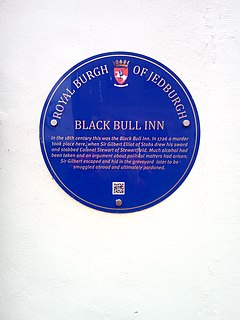 W
WColonel John Stewart was a Scottish professional soldier, first in the Scottish Army and then in the British Army. He served with the army in Scotland, France and Flanders, and held a seat in the House of Commons of Great Britain from 1708 to 1715.
 W
WGeorge Granville Sutherland-Leveson-Gower, 5th Duke of Sutherland, KT, PC, styled Earl Gower until 1892 and Marquess of Stafford between 1892 and 1913, was a British courtier, patron of the film industry and Conservative politician from the Leveson-Gower family. He held minor office in the Conservative administration of Bonar Law and Stanley Baldwin in the 1920s and was later Lord Steward of the Household from 1935 to 1936. He was also a noted patron of the British film industry with the Sutherland Trophy named in his honour.
 W
WSir Thomas Livingstone, Viscount Teviot was an military officer of Scottish descent who was born in the Dutch Republic, and spent his career in the service of William of Orange.
 W
WGraeme Murray Walker, is an English semi-retired motorsport commentator and journalist. He provided television commentary of live Formula 1 coverage for the BBC between 1976 and 1996, and for ITV between 1997 and 2001.
 W
WLieutenant-Colonel Sir Alfred Cholmeley Earle Welby was a Conservative Party politician who served as the Member of Parliament (MP) for Taunton from 1895 until 1906. He had previously served in the British Army, rising to the rank of lieutenant-colonel in 1892. He stood unsuccessfully for the Conservatives in 1885, 1886 and 1892 prior to gaining his seat in Taunton. In 1906 he opted not to stand again in Taunton, but to contest the seat in East Finsbury, but was defeated. He was a London County Councillor from 1907 to 1910, and during the First World War, he was secretary of the Royal Patriotic Fund Corporation.